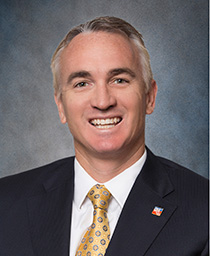Originally published in the Orange County Business Journal on November 3, 2025
The landscape of U.S. banking has been changing since the great recession. In 2005, the Federal Deposit Insurance Corp. (FDIC) insured nearly 9,000 banks. As of December 2024, there are just 4,487. This trend of bank consolidation has not only nearly halved the number of banks but also led to just three institutions holding about 30% of all U.S. domestic deposits and community banks holding just 13% according to the FDIC.
Unfortunately, the creation of new banks has also seen a dramatic decline. Between 2000 and 2008, 1,243 new banks were formed; however, from 2009 to March 2025, that number plummeted to only 95. In 2024, only six de novo banks (newly chartered) opened their doors to the public. Certainly, government regulation can in part explain some of this decline. New bank formation has been impeded by increased capital requirements, the Dodd-Frank Act making the chartering process more difficult, and slow regulatory approval. State regulators even recognize that the absence of new bank formation can harm communities nationwide.
The U.S. economy is populated with small businesses that rely on our financial system to fuel growth and meet the diverse needs of the American consumer. Community banks, in particular, are vital in local markets and are crucial to the financial health of the communities they serve. A 2021 report from the Kansas City Federal Reserve noted that community banking organizations continue to hold the majority of deposits in over 60% of all U.S. counties, particularly those in rural regions. The Independent Community Bankers of America site Federal Reserve reports that note community banks provide more than 60% of small-business loans and that net satisfaction among small-business borrowers is highest at community banks, far outpacing online lenders and large banks.
Community banks, like First Bank, provide personalized service and true relationship banking. With a smaller staff, we know the names of our clients and can provide individual attention as well as a customized banking experience. Local decision-making ability means that a community bank understands the area that it serves, leading to greater flexibility in lending. As a local bank, First Bank is focused on providing loans that support jobs within the economic area that we serve. That does not mean that we have the most competitive rates and fees in the industry. Our focus is more on the client. The deeper we build our relationships the more we can tailor loans, deposits, and investments to meet the individual needs of the client.
So, from my perspective we need to reverse the trend in the decline of community banks so that our local economies continue to thrive. From a regulatory perspective, this means a streamlined approach to the de novo application and approval process. Federal banking agencies need to re-evaluate their approach to innovative business models that are constantly being created, while maintaining safety and soundness within the banking system. Everyone remembers the great recession; there is no need to do that again!
At First Bank, we believe that strong communities are built on strong relationships. As a community bank, our mission is to serve family-owned and privately held businesses with personalized financial solutions that support long-term growth and stability. We’re committed to being a trusted partner who understands the unique needs of our clients and the communities they call home. If you're ready to experience the difference relationship banking can make, connect with our Commercial Banking team today.

Andrew Zinn
Managing Director, CRE Southern California
(562) 552-2252
[email protected]
Andrew Zinn possesses 25 years of lending experience in commercial real estate with the ability to structure and close loans between $2 million and $20 million. Zinn holds a B.A. Degree in Economics from UC Berkeley and is an honors graduate from Pacific Coast Banking School.


